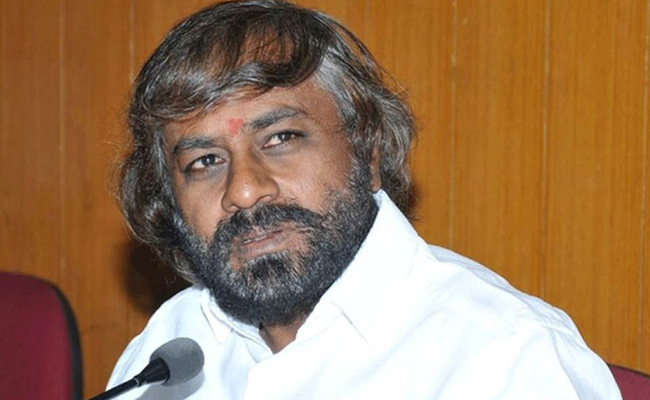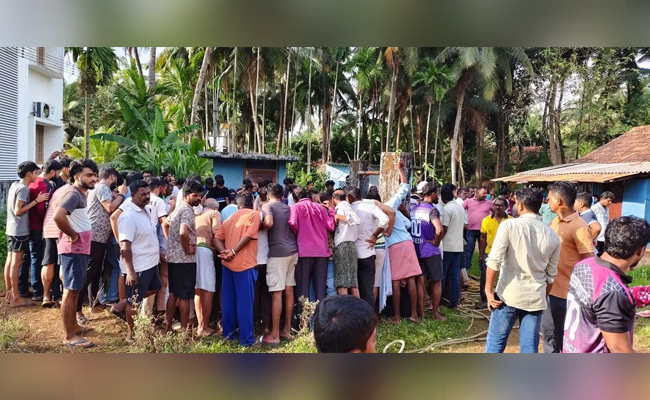Islamabad, Apr 26 (PTI): Pakistani health authorities have initiated "emergency preparedness" measures to secure pharmaceutical supplies in response to the suspension of trade ties with India, according to a media report on Saturday.
In response to the India's decision to suspend the Indus Water Treaty following the Pahalgam attack, Islamabad on Thursday suspended all trade with New Delhi among other moves.
Geo News reported that India trade halt triggered "urgent measures to secure" pharmaceutical needs in Pakistan and health authorities have initiated "emergency preparedness" measures to secure the supplies.
The Drug Regulatory Authority of Pakistan (DRAP) has confirmed that while there has been no formal notification regarding the ban's impact on the pharmaceutical sector, contingency plans are already in place, it said.
"Following the 2019 crisis, we had started preparing for such contingencies. We are now actively looking at alternative avenues to meet our pharmaceutical needs," the report quoted a senior DRAP official as saying.
Currently, Pakistan relies on India for 30% to 40% of its pharmaceutical raw materials, including Active Pharmaceutical Ingredients (API) and various advanced therapeutic products.
With this supply chain distributed, DRAP is seeking alternative sources from China, Russia, and several European countries.
The agency aims to ensure the continuous availability of essential medical supplies, including anti-rabies vaccines, anti-snake venom, cancer therapies, monoclonal antibodies, and other critical biological products.
While DRAP's preparedness offers some reassurance, industry insiders and health experts have warned of a looming challenge if immediate action is not taken to manage the fallout of the trade suspension.
"Pakistan imports some 30%–40% of its pharmaceutical raw material from India. We also import finished products, most importantly, anti-cancer therapies, biological products, vaccines, and sera, especially anti-rabies vaccine and anti-snake venom from India," a senior official from the Ministry of National Health Services, Regulations and Coordination said, requesting anonymity.
The Ministry of Health has yet to receive an official directive clarifying the status of pharmaceutical imports, despite the government's blanket announcement suspending all trade with India.
The pharmaceutical sector fears that disruption in the supply chain could lead to critical shortages.
The situation is further complicated by the existence of a robust black market, where unregistered and unapproved medicines are smuggled into Pakistan through Afghanistan, Iran, Dubai, and even across the eastern border, the report said.
While these channels fill gaps left by legal imports, they offer no guarantee of quality or consistent supply.
A delegation of pharmaceutical industry leaders travelled to Islamabad on Thursday to appeal for an exemption from the trade ban.
"We had meetings with DRAP and Ministry of Commerce officials to discuss the suspension of trade ties. We urged them to exempt the pharmaceutical sector from the ban, as there are many life-saving products whose raw materials come exclusively from India," said Tauqeer-ul-Haq, Chairman of the Pakistan Pharmaceutical Manufacturers Association (PPMA).
The PPMA delegation also approached the Special Investment Facilitation Council (SIFC), arguing that pharmaceutical and health-related trade must be excluded from the ban to protect patients' lives.
However, some experts see the current crisis as a wake-up call for long-term investment in local production of APIs, vaccines, and biologicals.
"This crisis could be a turning point for Pakistan," said Zafar Iqbal, a senior public health expert.
Terrorists opened fire in Jammu and Kashmir's Pahalgam on Tuesday, killing 26 people, mostly tourists, in the deadliest attack in the Valley since the Pulwama strike in 2019. The Resistance Front (TRF), a proxy of the banned Pakistan-based Lashkar-e-Taiba (LeT), claimed responsibility for the attack.
Let the Truth be known. If you read VB and like VB, please be a VB Supporter and Help us deliver the Truth to one and all.
Hubballi: Forest minister Eshwar Khandre will hand over relocation cheques to 57 residents of Talewadi village in Belagavi on May 17, under the voluntary relocation programme.
Located within the Bhimgad Wildlife Sanctuary, Talewadi is the first of 13 villages earmarked for relocation from one of Karnataka’s densest forests — a crucial tiger corridor linking the Kali Tiger Reserve with tiger habitats in Goa and Maharashtra, Deccan Herald reported on Thursday.
The relocation will free up over 1,000 hectares of inviolate forest land for wildlife. For the villagers, the move promises access to better healthcare, education, and employment opportunities.
The residents of the village have been demanding relocation since 2013–14, citing challenges like poor connectivity and seasonal isolation during monsoons, when overflowing streams would cut them off from the mainland, added the report.
Khandre had visited the village in December 2024, assuring residents of support and timely action. The upcoming cheque disbursal marks the fulfillment of that promise, as the entire Talewadi village is being relocated outside the protected area.
“There was no force from the department for relocation. This is completely on our request,” said Bayaji Varak, a Talewadi resident and one of the beneficiaries of the relocation.





